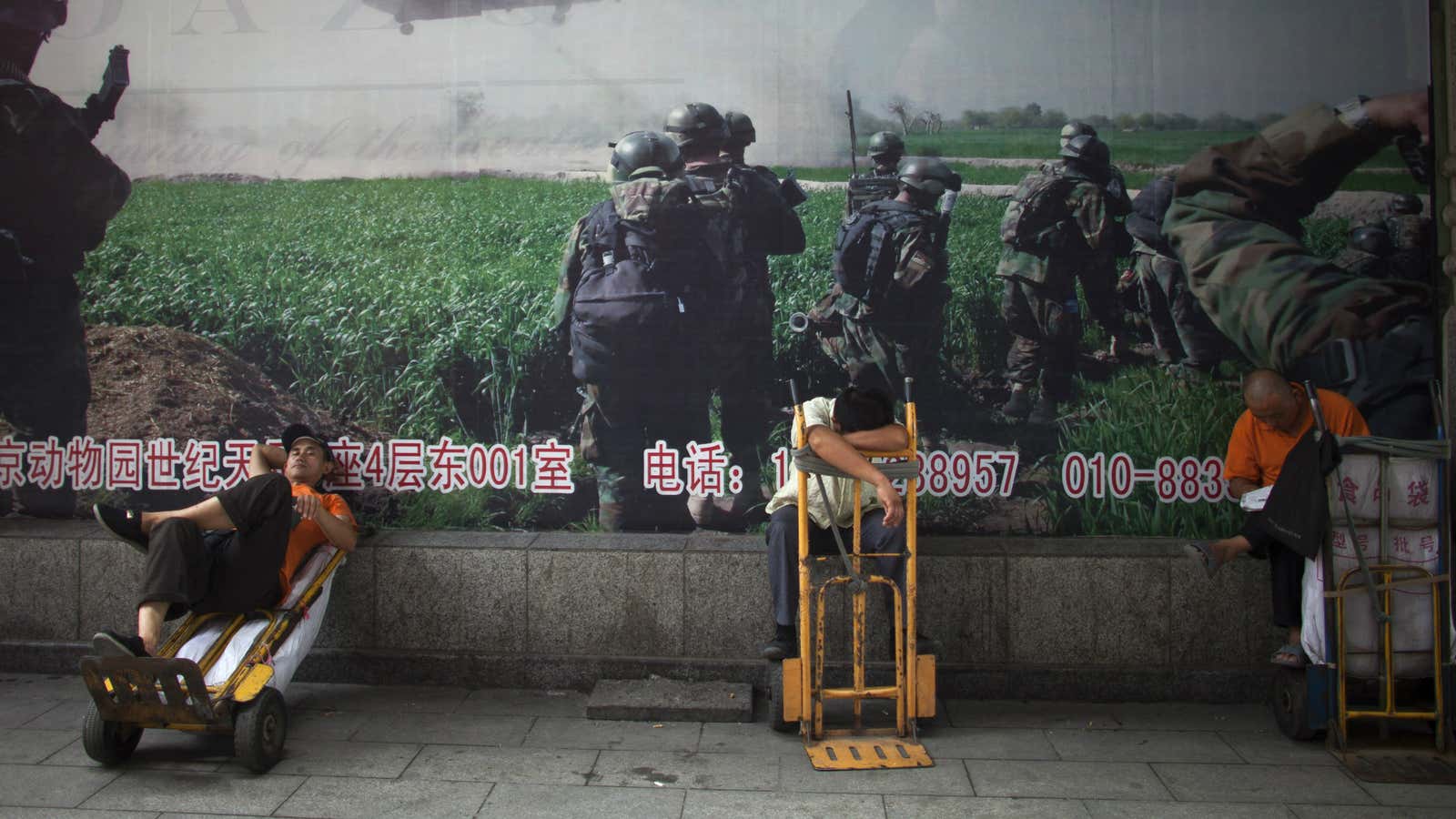China’s economic slowdown is wreaking havoc on the bottom line of multinational companies, who are issuing a string of profit warnings and disappointing earnings thanks to a worse-than-expected sales there. Economic growth has slowed from double digits to an estimated 7.6% this year, and the International Monetary Fund said this week it expects it to fall further next year to 7.3%.
The slower growth is having an immediate effect on the western firms that have made big investments in an attempt to cater to China’s middle class in sectors ranging from restaurants to luxury goods to travel. China President Xi Jinping, who has touted the country’s shift to a consumer-driven economy, told international leaders at the APEC summit this week that China was “focusing more on improving the quality and efficiency of growth.” That’s small comfort to some of the companies who are taking the hit:
Food and personal goods:
Yum Brands, owner of fried-chicken chain KFC, said Oct. 8 that third-quarter profit fell 68% because it is taking longer than expected for sales to rebound in China, which accounts for half of the company’s operating profit. Yum Brands’ China troubles started in earnest last December, when concerns were raised about its chicken suppliers. Earlier this year, the company’s sales suffered another blow after customers worried about bird flu stopped eating chicken, sending first quarter profits down 27%. Yum Brands also said Oct. 8 it would also take a $258 million write down related to the “Little Sheep” chain of hot pots it acquired China, which have been growing slower since Yum took over.
Unilever issued its first profit warning in nearly a decade on Sept. 30, saying it was experiencing “weakening in the market growth in many emerging countries” in the third quarter, and that it expected to report overall sales growth of 3 to 3.5%, down from earlier estimates of 5%. The company did not specify China, but emerging markets made up 41% of its sales in the first half of 2013.
Clothing and shoes:
Nike sales rose in every market but China last quarter, where they fell 3% to $574 million. The company gets 9% of its revenues from China, and executives said they were taking “decisive action” to “reset” the market—which could mean selling down inventory, and little growth, for quarters to come. Nike, which has been in China for decades, over-estimated China’s demand for its merchandise after the Olympics and has been losing ground to Adidas there.
Burberry CEO Angela Ahrendts said the slowdown in China might not be an “economic accident, it might be the new deal,” in an interview published in the Les Echos newspaper on Oct. 7 (link in French). Burberry’s sales are seen as something of a bellwether for affordable luxury in China, and the company’s warning that sales in China would disappoint last September convulsed the luxury goods industry. The CEO’s interview this week spooked shareholders in LVMG, Hermes and Richemont.
Hotels:
A combination of massive over-building, economic slowdown and a country-wide crackdown on corruption in government is also hurting international hotel chains. Profits from the ShangriLa-Asia’s hotels in Mainland China dropped from $15.1 million in the first half of 2012 to $2.5 million in the first half of 2013, the company said in August. In July, executives from Hyatt Hotels said during their second quarter earnings call that “we continue to have confidence in the long-term prospects in China, but anticipate that this year will continue to be challenging.”
